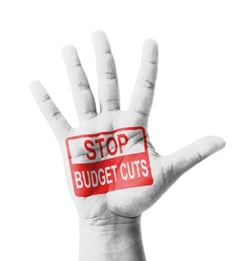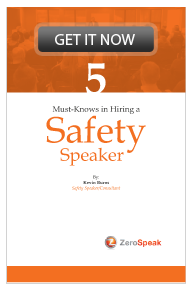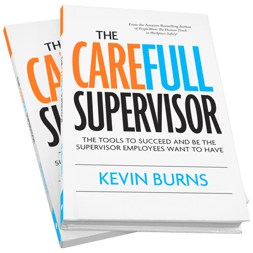Companies that invest in safety during economic downturns fare better, lower costs, reduce turnover and build a reputation as an employer of choice. 
When the economy lulls and work slows down, the first reaction may be to slash expenditures. That includes the safety budget. And, on paper, it may look like the right move. But it is a predictable move - one that research does not support as being successful long-term.
Harvard Business Review Says …
The following is from the Harvard Business Review article, Roaring Out Of Recession.
“Confronted by a recession, many CEOs swing into crisis mode, believing that their sole responsibility is to prevent the company from getting badly hurt or going under. They quickly implement policies that will reduce operating costs, shrink discretionary expenditures, eliminate frills, rationalize business portfolios, lower head-count, and preserve cash. They also postpone making fresh investments in R&D, developing new businesses, or buying assets such as plants and machinery."
The article continues,
"Companies that master the delicate balance between cutting costs to survive today and investing to grow tomorrow do well after a recession. These companies reduce costs selectively by focusing more on operational efficiency than their rivals do, even as they invest relatively comprehensively in the future by spending on marketing, R&D, and new assets. Their multi-pronged strategy is the best antidote to a recession."
Business Management Daily Says …
According to Business Management Daily, "Safety-conscious companies look beyond the bottom line. In addition to reducing costs and boosting morale, safety can be promoted as a recruiting tool to applicants. Too many employers look at on-the-job injuries as a cost of doing business. Not smart. By taking a tougher stance on workplace safety, organizations can cut their workers' comp, disability and absence costs. Plus, safe companies can use their exemplary safety records as another feather in their cap in recruiting."
To employees, cutting safety operating and training budgets in a down economy implies a lack of commitment to safety. Even if there is no evidence to support this, there are still the optics. What people perceive about a company’s commitment to safety is always more influential. It may appear to employees that in spite of any commitments to safety that the company may have made in past, when times are tough, safety is first to go. Damage to the corporate brand is the result.
Health & Safety Authority of Ireland Says …
From the Ireland Health & Safety Authority web site, "Apart from complying with the law, company Directors will not want to risk the reputation of their businesses by having a serious accident and the adverse publicity that would bring. Directors and officers also wish to avoid undue pressure from employees, trade unions and customers due to poor safety and health management. Many businesses are now placing more emphasis on their corporate ‘social’ responsibility to look after work colleagues who may be friends, family members or other relations."
If you want employees to care about the company and their own safety, you have to demonstrate first that you care about their safety. Employees can sense when it doesn’t feel real. When that happens, or appears to happen, employees stop caring. This drops production. That costs money. And if something terrible happens (injury or fatality), then kiss productivity goodbye.
Production Is Revenue
Revenue is protected through increased and steady safe production - not through cut-backs. In a down economy, when revenues are drying up, you want fixed costs, like worker insurance premiums, to reduce. Attempting to maintain the status quo is difficult. Cutting the safety budget places a company in a tenuous situation. You have to hope that nothing happens that negatively impacts costs. But, proactive safety awareness can actually reduce premiums at a fraction of the potential spin-off savings.
From The Dilemma of Training & Development in Times of Economic Recession published in the New Hampshire Association for Talent Development.
Roll The Dice?
Holding the line on investment in safety and taking a wait-and-see attitude are rolling the dice. Investing in safety in a down economy with a smaller staff could actually reap huge rewards for years to come.
Companies that invest in safety during economic downturns fare better. They lower their costs, reduce turnover when activity ramps up and build a reputation as an employer of choice.
Kevin Burns is a management consultant, safety speaker and author of "The Perfect Safety Meeting." If you want someone to really drive the safety message home, consider Kevin to speak at your next safety event. He delivers engaging and entertaining keynote safety presentations for everyone: from front-line staff to senior management. He helps people see the light when it comes to buying-in to the safety program.



